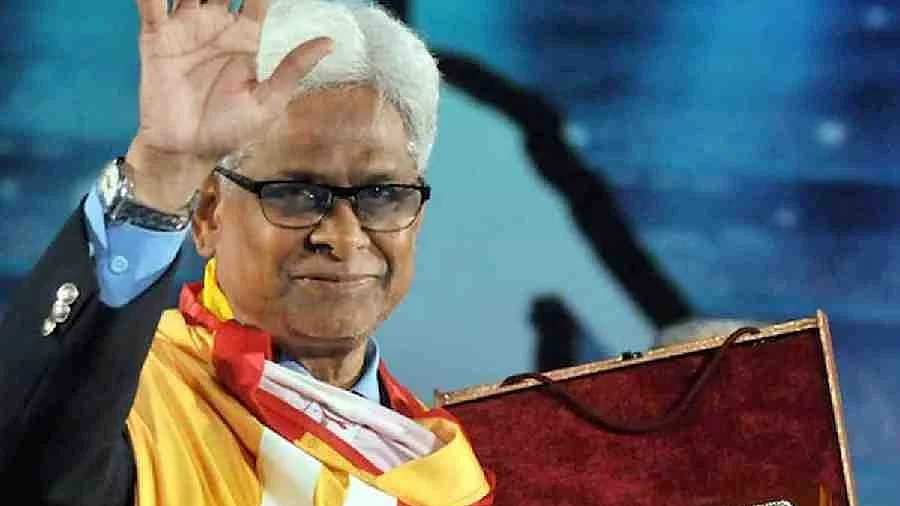Mohammed Habib: A quiet curtain call for the 'Bade miyan of Indian football'
The passing of the legendary former Indian captain further loosens the ties of that golden legacy Kolkata football shared with Hyderabad

The sombre news found us on this contemplative Independence Day afternoon: Mohammed Habib, the bade miyan of Indian football was no more.
Sad, but not really unexpected, as the 74-year-old legend had been coping with the degenerative Parkinson’s disease and dementia for a number of years now, and looked frail when he turned up at the East Bengal Club's felicitation ceremony of coach P.K. Banerjee last on their 100th anniversary.
The end came at his modest home in Hyderabad, a city which has provided for a glittering array of stars who once made Kolkata the Mecca of football once, not to speak of the fascinating cultural melting pot it contributed to at the national level. Just reflect on the other names from the city of the Charminar: Tulsidas Balaram, the third force of the Holy Trinity with Chuni Goswami and PK; Dharmalingam Kannan; Peter Thangaraj; Syed Nayeemuddin, aka 'Nayeem'; the Habib–Akbar brothers; Shabbir Ali; and Victor Amalraj later in the day.
The link between these two cities has become tenuous over the years, however, along with a dip in the talent reserves—despite Hyderabad now boasting a team in the Indian Super League (ISL).
Balaram, who settled down a few kilometres from Kolkata, passed away earlier this year, cutting one of the threads that bind them together. A disillusioned Nayeem relocated to his city after his wife’s death and is struggling to make ends meet in Kolkata. Dhyanchand awardee Shabbir Ali did the same after a health scare sometime back.
Bade miyan, who was a darling of the Big Three in turns during his reign in the City of Joy for nearly two decades between 1966 and 1984, evoked strong emotions during his visits to a couple of East Bengal’s celebrations.
However, his memory had started failing him in the last few years and Habib rued that nobody recognised him in his own city—the same sense of neglect that resonated in Nayeem's voice—though Habib was captain in the Indian squad that finished with a bronze in the Asian Games in 1970. More than 50 years down the line, it remains India’s last significant medal at the Continental level.
Speaking to The Bridge, Nayeem says, ‘’Now that he has passed away, he will be in the limelight, but when he was alive nobody bothered about him. But he deserved affection and care. The (All India Football Federation) never looked after him.’’
How great was Habib really as a footballer?
The football buffs of earlier generations may be often accused of looking at their heroes of the glory days of the '70s through a romanticising prism, but this pocket-sized No.10 did leave a lasting impression on King Pele during his visit for an exhibition game against Mohun Bagan in 1977.
Then retired, Pele had arrived with the Cosmos Club. Before a sellout crowd at the Eden Gardens, Habib egged on his teammates to not go down without a fight on such an occasion. He scored a goal and provided a crucial assist to brother Akbar, which enabled Mohun Bagan to take a 2–1 lead before the match eventually ended 2–2.
An attacking midfielder, history would see Habib as the quintessential leader of men who hated to lose—a quality which was endorsed by some of his larger-than-life teammates and coaches. He also had an uncanny knack for scoring and finished with 113 goals for East Bengal, the fourth highest in the club’s all-time tally.
A strict disciplinarian and devout Muslim, Habib was also (in)famous for letting fly the choicest expletives for his colleagues' bad passes or when anyone floundered. Not unusual in this sport, though it never came in the way of him grooming young talents during his long stint as the Tata Football Academy’s head coach in Jamshedpur.
That would be the last of his legacy in this sport, where he groomed several promising names who went on to rule the roost in Indian football—be it a Goutam Ghosh, Tausif Jamal, Aloke Das or Carlton Chapman.
They surely don’t make men like the bade miyan any more!
Follow us on: Facebook, Twitter, Google News, Instagram
Join our official telegram channel (@nationalherald) and stay updated with the latest headlines
Published: 16 Aug 2023, 2:19 PM
